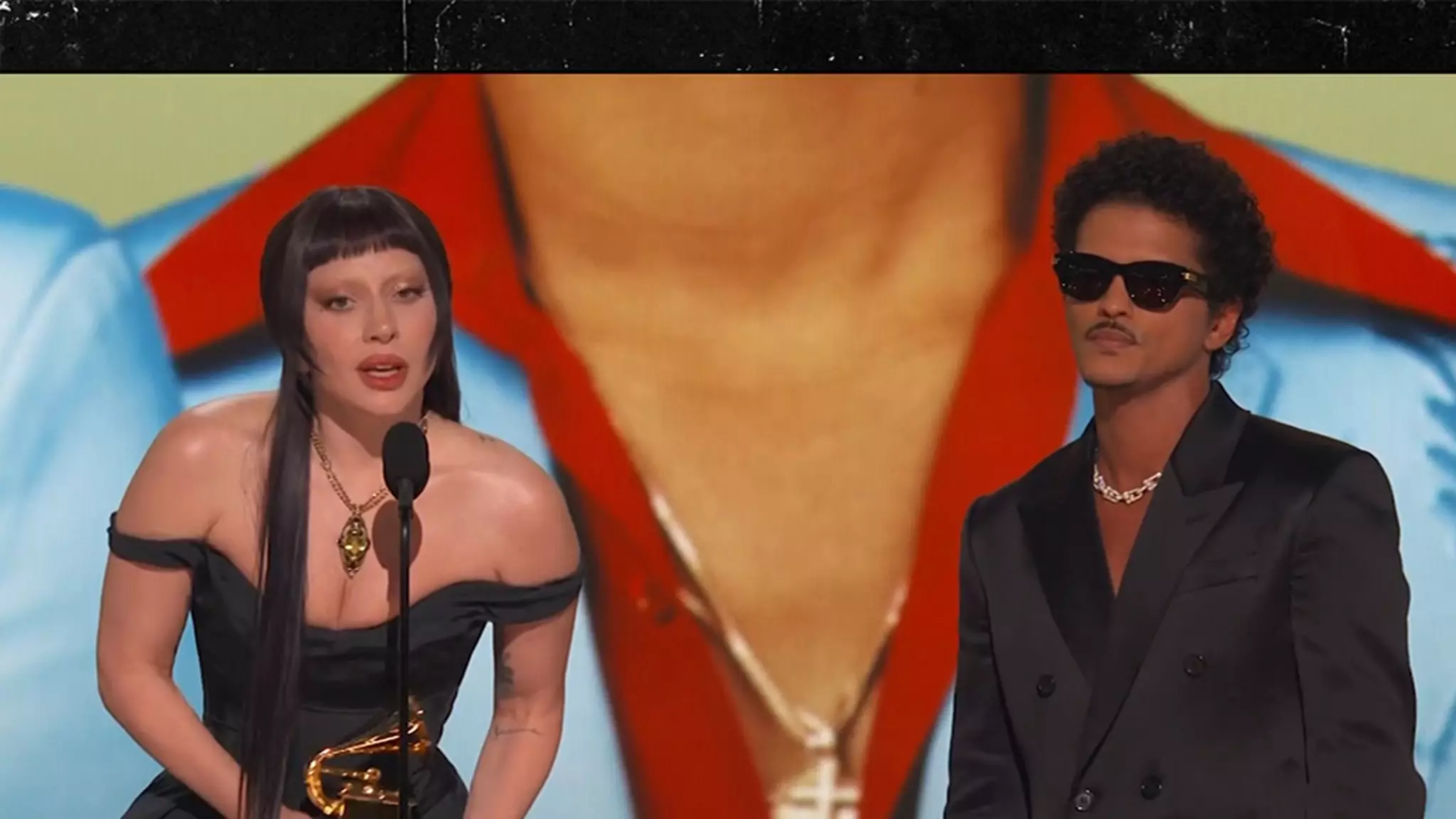At this year’s Grammy Awards, Lady Gaga seized the opportunity to amplify the voices of the LGBTQ+ community, firmly establishing herself as a powerful advocate for trans rights. In a moment memorable not only for her musical achievements but also for her unwavering commitment to social justice, Gaga explicitly acknowledged the importance of visibility and support for transgender individuals. This arises at a time when many feel their rights are under siege, showcasing the intersection of art and activism in a very public forum.
Recognition and Responsibility
Gaga and Bruno Mars clinched the Grammy for Best Pop Duo/Group Performance with their delightful track “Die With a Smile.” However, what made the occasion particularly significant was her decision to express gratitude not just to her fiancé, Michael Polansky, but also to champion transgender rights. Gaga’s statement underscored the necessity of uplifting marginalized voices, imploring viewers and fans to recognize that trans individuals cannot—and should not—be rendered invisible by society or politics.
Gaga’s remarks resonate deeply with the current political landscape, which has seen a disturbing trend towards the erasure of gender diversity. References to the recent executive order signed by former President Trump, which mandates a binary understanding of gender, highlight the urgency of her message. The order has enforced a regressive stance on gender identity, stripping rights away from the transgender community and implementing policies such as the bathroom ban that forces individuals to adhere to the gender assigned at birth. Gaga’s impassioned plea serves as a counterstatement to these moves, reminding audiences that music and art are ultimately rooted in love, unity, and acceptance.
Gaga’s speech parallels the actions of other artists at the Grammys, where the platform was utilized to address pressing social issues. Chappell Roan’s call for music companies to support young artists through healthcare access reflects a broader movement within the industry. Similarly, Shakira’s acknowledgment of immigrants and Alicia Keys’ advocacy for Diversity, Equity, and Inclusion (DEI) initiatives illustrates a growing trend among musicians to use their fame to instigate societal change. The Grammy stage has become more than just a celebration of music; it is now a critical space for dialogue and activism.
As Lady Gaga and her fellow artists continue to push boundaries and advocate for social justice, their contributions will undoubtedly play a role in fostering a more inclusive environment for all individuals—regardless of their gender identity or sexual orientation. The Grammys, an emblem of the music industry, witnessed a profound moment in which entertainment collided with significant societal concerns. Gaga’s call to action acts not only as a reminder of the struggles faced by the LGBTQ+ community but serves as an invitation for all to engage in the fight for equality. As artists take a stand, they illuminate the path forward, showing that love and acceptance must triumph amid challenges.

